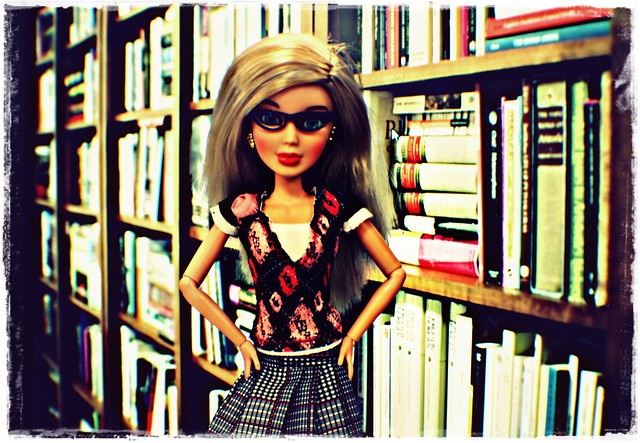There’s more than one librarian who performs stand-up comedy (it’s me and one other person) but due to fear from the library she worked at over free press and library promotion, she was “let go”. Libraries could use a little fun, and they could especially use some decent advertising. Jobs are being cut, funding is being slashed and libraries are being accused of becoming obsolete. So they should be taking what they can get in the realm of positive PR. Instead, libraries insist on personality-less librarians whose anonymity is somehow connected with keeping library users’ information private.
One of the biggest downfalls of public librarians is in
their staunch approach to remaining anonymous while providing very personal
services to people. From finding the
next book to read, to looking up information on health issues and legal
matters, the people who patronize the library often have to open up to a
librarian about their personal lives in order to find the materials that they
need. From the point of view of a
librarian, remaining anonymous keeps the library services consistent and keeps people who have personal questions from embarrassment. Legally, every library user’s information is
kept unidentified and their searching and borrowing histories are cleared
systematically. So there should be general concern for privacy, but does there really need to be anonymity on both sides of the reference desk?
Imagine your favorite coffee shop or bar, isn’t part of the
appeal the people who work there? And
you probably have a favorite bartender or barista who you hope will be working
when you stop in. Personal relationships
between people are important,
especially at the places outside of our homes that we choose to spend
time. We want to feel welcome and comfortable. Shouldn’t a library feel the same way? We should be able to get know the librarians
who help us find interesting things to read, who help us use databases and perform
research, and who are behind the desk when we walk into the
library.
In all reality, librarians need to lighten up in order to
shirk the image of the crusty, hermit crabby lady who sits behind a large stack
of books muttering about the demise of the card catalog. Libraries need to be more than books,
information, and a physical building.
They need to be a place that people want to go, a place to spend time, a
place with personality. That’s what
informs almost every decision we make about where we want to go outside of our
homes. There are enough painfully boring
and inanely infuriating trips to public agencies that we have to make, the
library is not and should not be one of them.
It’s a choice to patronize the library (that’s why we call people who
use library services, patrons), and it should be a fun, inspirational, or at
the very least - enjoyable experience.
Personality in government means a lot. It means giving a face to a name, and it
means making connections with people. Librarians
with personality give the entire library a better reputation. Librarians who talk about the library outside
of work are some of the best advertising the library has. Libraries need people who are fun, outgoing,
and engaging to greet and welcome people into the free public space that we all
pay into. What libraries don’t need are
more rules, policies, and procedures that often boil down to fear of
progression and change. People need
stimulation, knowledge, and human contact.
Libraries have those things, but people need to know that. Personality is not just a plus, it is a must
have for any business to survive.
Libraries that want to survive need this as well.
So let’s stop telling people what they can’t do in
libraries, and let’s stop stifling librarians’ personalities and ideas. Professionalism can encompass knowledge and
respect while still allowing people to be people. And that’s really all anyone wants.






